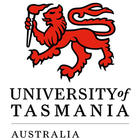Graduate Certificate in Dementia
Graduate Certificate in Dementia
The Graduate Certificate in Dementia offers a cross-disciplinary understanding of dementia and its impact on individuals, societies and governments. Graduates will possess a range of knowledge and perspectives to inform their professional and personal support for the needs of people with dementia. As expectations increase around person-centred care, and decision…
Categories
COURSE DESCRIPTION
The Graduate Certificate in Dementia offers a cross-disciplinary understanding of dementia and its impact on individuals, societies and governments. Graduates will possess a range of knowledge and perspectives to inform their professional and personal support for the needs of people with dementia. As expectations increase around person-centred care, and decision making informed by a deep knowledge of dementia, a variety of opportunities may become available for those with postgraduate qualifications in dementia.
Course objectives
The rising prevalence of dementia is creating new challenges and a pressing need for change in the way our systems and practices support people who live with dementia. This program will equip you with the expertise to lead transformation, based on the latest evidence.
Course information:
- Fully online and flexible with modular content suitable for a wide variety of study approaches
- Easy to navigate and accessible across a range of devices
- Personal perspectives highlighted in assessments linking acquired knowledge to individual contexts.
- Relevant and up-to-date course information.
Career outcomes
Depending on your background and experience, career opportunities may include: Leadership roles in the health, community or aged care sector Designing and implementing dementia-related policy in the public or private sector Senior clinical roles and clinical leadership (for students with a health-professional background), driving evidence-based practice and clinical redesign Advocacy or advisory roles in the health, community or aged care sector.
Learning Outcomes: 1 Draw on their body of knowledge and the perspectives and personal experiences of people with dementia and their carers, neuroscience, public health, clinical processes, health care systems, and social care systems to design solutions to problems that are context appropriate. 2 Analyse and evaluate strategies, systems and practices aimed at improving the lives of people with dementia and their carers in communities, health systems and social care systems 3 Relate a wide range of local and global perspectives on dementia to local and specific contexts, applicable to individuals, organisations, governments and communities 4 Engage with a global community of learners in dementia to share knowledge and perspectives. 5 Effectively communicate knowledge on dementia, care and prevention, in a variety of contexts 6 Demonstrate consideration of the lived experience of people with dementia and their carers when evaluating practices and policies 7 Approach issues of dementia care and prevention in a legally, ethically, socially and culturally responsible manner.
We anticipate career outcomes that utilize skills around direct care and/or indirect care roles, depending on the background of master’s student. These may include:
- Senior manager roles, coordinator roles or operational management positions for residential care or community facilities
- Government or private roles focusing on designing and implementing policy and governance
- Roles that lead, inform and design practice around care
- Senior clinical roles and clinical leadership roles (for students who have a health-professional background, for example for nurses who complete the master’s program)
All students and alumni of the Master of Dementia program will be able to share their knowledge via online professional communities of practice, hosted by the Wicking Dementia Centre and available to them indefinitely after graduation.
REQUIREMENTS
Admission to most postgraduate coursework courses at the University of Tasmania require qualifications equivalent to an Australian bachelor degree.
Course Specific Requirements A bachelor degree in a health discipline, social work or psychology (AQF7/equivalent from a recognised institution) A bachelor degree (AQF7 equivalent) in another field, PLUS EITHER a year of full time (equivalent) work experience in dementia/aged care, neurobiology, heath systems/services or public health, OR successful prior completion of four units from the Diploma of Dementia Care (M1D) We recommend that candidates complete the Understanding Dementia MOOC prior to enrolment, if their previous degree is not related to dementia.
IELTS (Academic) – 6.0 (no individual band less than 6.0)
TOEFL (iBT) 72 (no skill below: Reading 16; Listening 16; Speaking 18; Writing 22)
PTE Academic 50 with no score lower than 50
UTAS Access-English Level 7 – 60% (no individual score less than 60%)
Cambridge CAE (Certificate of Advanced English) – B Grade
Cambridge CPE (Certificate of Proficiency in English) – C Grade
Cambridge BEC (Business English Certificate) Higher – C Grade.
EDUCATIONAL INSTITUTION
The University of Tasmania was officially founded on 1st January 1890 and is located at Sandy Bay, Tasmania. In addition to the main campus at Sandy Bay, it also operates out of the Newnham Campus and the Cradle Coast Campus. The most popular courses offered are the environmental studies that include wilderness management, marine sciences and indigenous studies in Tasmanian literature. Other unconventional courses include agriculture development, studies on the community and population and ocean study programs. The university also comprises of a Music Conservatorium, Art school and a School of Clinical studies.

